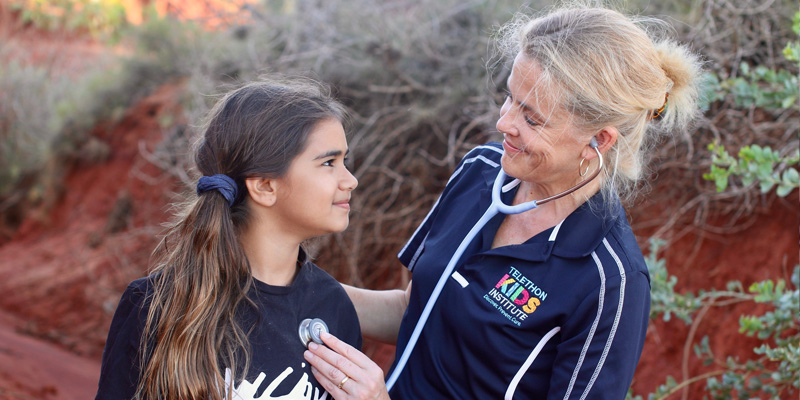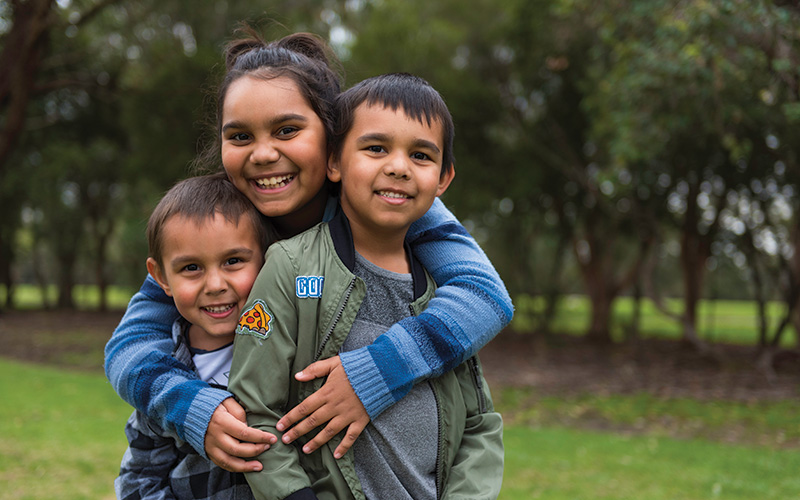Search
Research
Reference genotype and exome data from an Australian Aboriginal population for health-based researchThis data set provides a useful reference point for genomic studies on Aboriginal Australians
Research
Visual-motor integration, visual perception, and fine motor coordination in a population of children with high levels of Fetal Alcohol Spectrum DisorderAboriginal children living in remote Western Australia have poor visual-motor integration skills regardless of prenatal alcohol exposure or FASD

News & Events
New national guideline set to tackle skin infectionsWhen health organisations in the north-west of WA requested urgent action to address the region’s high rate of skin infections, Dr Asha Bowen answered the call.

News & Events
Study finds high rates of chronic lung disease in remote-living Aboriginal childrenAlmost one in five children across four remote Kimberley communities has some form of chronic lung disease, according to a new study co-designed and conducted in partnership with Aboriginal communities.
Research
Healthy skin for children and young people with skin of colour starts with clinician knowledge and recognition: a narrative reviewSkin conditions most frequently encountered in paediatric practice include infections, infestations, atopic dermatitis, and acne. Skin of colour refers to skin with increased melanin and darker pigmentation, and reflects global racial and ethnic diversity. Managing skin conditions in skin of colour requires health equity nuance, which is rarely explicitly taught.
Research
An exploratory qualitative study of inter-agency health and social service partnerships focused on Aboriginal and Torres Strait Islander clientsThe siloed nature of the health and social service system threatens access for clients engaging numerous organisations. Many Aboriginal and Torres Strait Islander people face adverse circumstances which contribute to multiple health and social needs. Effective relationships between health and social services are integral to coordinated service provision to meet the diverse needs of Aboriginal and Torres Strait Islander clients.

The Institute's Standards for the Conduct of Aboriginal Health Research outline our ways of working with Aboriginal communities and peoples.
Research
Trimodal skin health programme for childhood impetigo control in remote Western Australia (SToP): a cluster randomised, stepped-wedge trialSkin infections affect physical health and, through stigma, social-emotional health. When untreated, they can cause life-threatening conditions. We aimed to assess the effect of a holistic, co-designed, region-wide skin control programme on the prevalence of impetigo.
Research
The need for community-controlled tools to monitor health impacts of housing and living conditions in AustraliaWe explore the contemporary landscape of housing investments and initiatives seeking to improve health outcomes among Aboriginal and Torres Strait Islander people in Australia, as well as the dearth of quality evidence and agreed approaches to evaluation.
Research
Cumulative incidence of child protection system contacts among a cohort of Western Australian Aboriginal children born 2000 to 2013Reducing the over-representation of Aboriginal children in the child protection system is a key target for the Australian government. We aimed to provide more recent evidence on the population-level cumulative incidence of contacts for Aboriginal children with child protective services in Western Australia.
